| |
International
Women's Day

March 8

A.I.-generated images [prompted and edited by me] of the great women of history!
Take the quiz below and see how much you know about them.
Interesting Fact: Smartest (measured) human in recorded
history was a woman:
Marylyn vos Savant (IQ 190).
"International Women's Day"
[This is an excerpt from an article by Borgna Brunner]
4,000 people marched through Madrid in 1998 in honor of International Women's Day. (Source/AP)
IN its various incarnations, ranging from a communist holiday to a U.N.-sponsored event, International Women's Day has been celebrated for almost 90 years.
Inspired by an American commemoration of working women, the German socialist Klara Zetkin organized International Women's Day
(IWD) in 1911. On March 19, socialists from Germany, Austria, Denmark and other European countries held strikes and marches. Russian revolutionary and feminist Aleksandra
Kollontai, who helped organize the event, described it as "one seething trembling sea of women."
Women's Rights and Peace
As the annual event developed, it took on the cause of peace as well as women's rights. In 1915, Zetkin organized a demonstration in Bern, Switzerland, to urge the end World War I. Women on both sides of the war turned out.
Russian Women and the February Revolution
Both Zetkin and Kollontai took part in the most famous International Women's Day-the March 8, 1917, strike "for bread and peace" led by Russian women in St. Petersburg. The IWD strike merged with riots that had spread through the city between March 8-12. The February Revolution, as it became known, forced the Czar Nicholas II to abdicate. (Russia switched from the Julian to the Gregorian calendar in 1918, which moved the dates of the February revolution [Feb. 24-28, old style] to March.)
The "Heroic Woman Worker," Soviet Style
Kollontai, a minister in the first Soviet government, persuaded Lenin to make March 8 an official communist holiday. During the Soviet period, the holiday celebrated "the heroic woman worker." Today it is still a Russian holiday--celebrated in the fashion of Mother's Day with flowers or breakfast in bed--in which men show appreciation for the women in their lives.
International Women's Day in the United States
International Women's Day was commemorated in the United States during the 1910s and 1920s, but then dwindled. It was revived during the women's movement in the 1960s, but without its socialist associations. In 1975, the U.N. began sponsoring International Women's Day.
|
March is U.S.A.'s National
Women's History Month.
How did Women's History Month begin?
National Women's History Month began as a single week and as a local event. In 1978, Sonoma County, California, sponsored a women's history week to promote the teaching of women's
history, which, at that time, was a neglected subject in elementary and high school curriculums. The week of March 8th was selected to include International Women's Day. In 1981 Congress passed a resolution making the week a national celebration, and in 1987 expanded it to the full month of March.
Celebrate the achievements of women with the quiz below...
Notable Ancient Women Quiz
While I use many sources, my original source for this quiz is...
Holly Hartman
This is a multiple choice quiz, with answers at the bottom.
Let's begin...
(1) This powerful high priestess of the moon is the first recorded female name in
recorded history
(by the dating of the record); And, she is perhaps world's first
named author. Here is my rendering of her (with the help of a.i.).
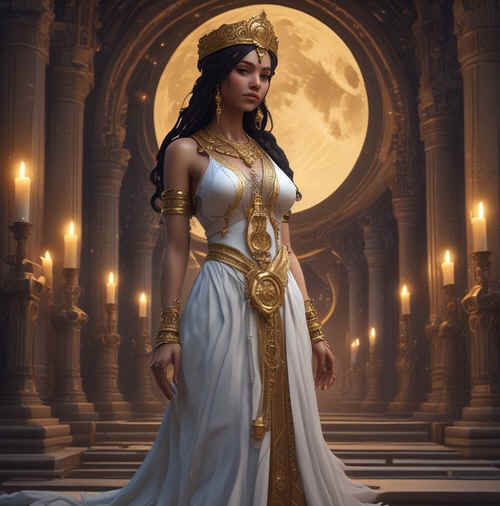
"Priestess of the Moon"
(Image created by A.I. and Leon.)
(a) Aglaonike, (b) En-Hedu-Anna,
(c)
Aganice
(2) Called "the Vietnamese Joan of Arc," she held a sword in each hand as she led her troops against the
Chinese while riding an elephant:

"The Lady General Clad in Gold"
(Image created by A.I. and Leon.)
(a) Trieu Au, (b)
Trung Trac, (c)
Trung Nhi
(3) She ruled ancient Egypt for longer than any other woman pharaoh:
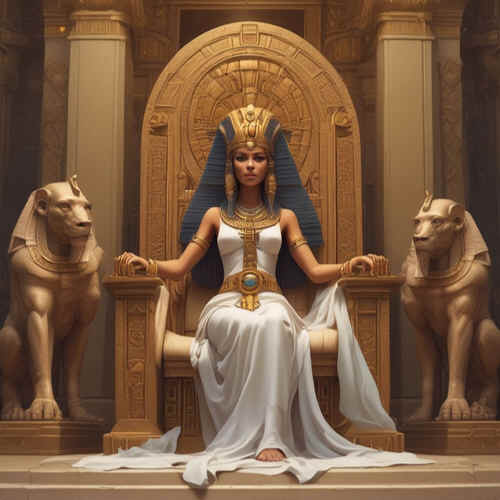
"The Female King"
(Image created by A.I. and Leon)
(a) Candace, (b)
Cleopatra VII, (c)
Hatshepsut
(4) The patron saint of Paris, she is said to have used the power of prayer to save her city from the Huns:

"The First Prayer Warrior"
(Image created by A.I. and Leon.)
(a) St. Odilia,
(b)
St. Adelaide, (c)
St. Genevieve
(5) China's most famous female warrior, she fought as a man for more than ten years:

"Chinese woman who fought as a man"
(Image created by A.I. and Leon)
(a) Fuhao, (b) We
Zetian, (c) Hua Mulan
(6) This Greek lyric poet is sometimes called the "tenth
muse"...

"The Tenth Muse"
(Image created by A.I. and Leon)
(a) Sappho, (b)
Erinna, (c)
Praxilla
(7) She commissioned the development of the first paper:
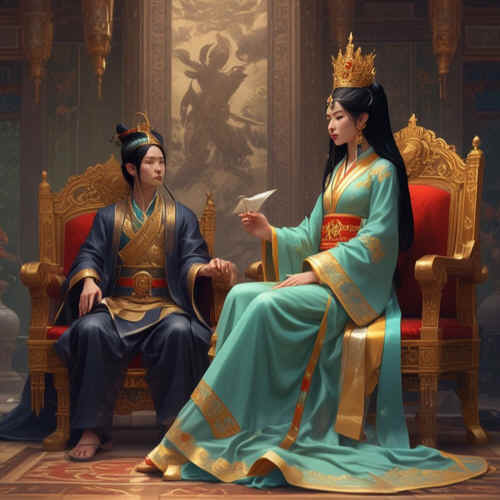
"The First Paper"
(Imaged created by A.I. and Leon)
(a) Hypatia, (b)
Shi Dun [Xi Deng], (c)
Gargi
(8) One of Japan's greatest writers, she is thought to be the first novelist in the world:

"Japanese Novelist"
(Image created by A.I. and Leon)
(a) Izumi Shikibu,
(b)
Murasaki Shikibu, (c)
Lady Sarashina
(9) She may have ruled Egypt alone after the death of her husband, the pharaoh
Akhnaten:
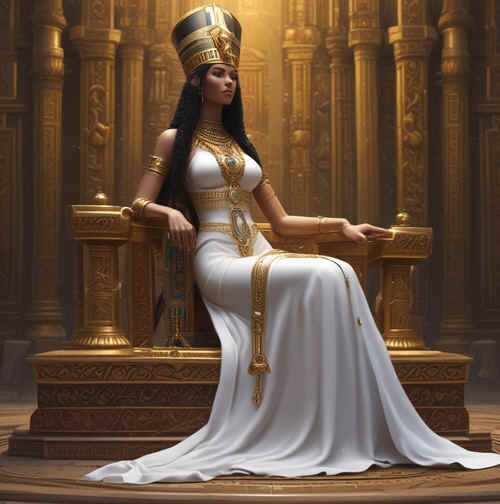
"No Husband, No Son"
(Image created by A.I. and Leon)
(a) Nefertiti, (b)
Kiya, (c)
Cleopatra VII
(10) In ancient times these woman warriors terrorized North Africa, Asia Minor, and the lands around the Black Sea:

"Ancient Woman Warrior"
(Image created by A.I. and Leon)
(a) Ephesians, (b)
Sarmatians, (c)
Amazons
Answers
1. Correct answer: En Hedu'Anna
En-Hedu'Anna (b. 2354? B.C.) was one of the priestesses of Nanna (male
personification of the moon) whose work in astronomy governed every aspect of ancient Sumerian life.
She is credited in writing many hymns (to Inanna, Nanna's hermaphrodite "daughter").
En-Hedu'Anna was called daughter of King Sargon the Great, and wife of Nanna
(obviously figuratively the wife of Nanna; like Christian nuns are considered
the wives of Christ).
On the other hand, two other great women were:
(a) Aglaonike (b. 200? B.C.) who was an ancient Greek philosopher who predicted
eclipses, and (b) the Greek Aganice (b. 1878? B.C.) who developed a system to predict planetary motion.
[Sources: Holly Hartman and Wikipedia]
2. Correct answer: Trieu Au
Trieu Au, also known as: "Lady Trieu", was the ultimate
feminist. She did not want to be controlled by men. But, she also
felt empathy for her people who were being mistreated by the Chinese
oppressors. She went into the mountains and organized an army that fought
against the Chinese armies. She called herself "The Lady General Clad
in Gold." Those who wrote about her made a point to notice her
abnormally large mammary glands. I'm not sure why they would do that, but
apparently she was known for that. And, we might say that she invented the
bra, because it was recorded that she had to tie them down so they would not
affect her ability to fight. After defeat by Chinese troops, Trieu Au (in
A.D. 248) committed suicide rather than surrender to the Chinese.
On the other hand, two other great women
were: (a) Trung Trac, and (b) Trung Nhi (AKA: "the Trung Sisters")
who organized a rebellion against Chinese rule in 29 A.D., won back their land, and became co-queens.
[Sources: Holly Hartman and Wikipedia]
3. Correct answer: Hatshepsut
During the 18th dynasty Hatshepsut (1503?-1482 B.C.) ruled Egypt for more than 20 years.
She was the stepmother of the two-year-old heir; but according to Egyptian law,
she could rule until her stepson became of age. She was called a
"female king" rather than a "ruling queen".
On the other hand, "Candace" was a title given to queens of ancient Ethiopia; one famous such Candace declared war on the governor of Egypt in 22 B.C. Cleopatra VII (69?-30? B.C.) fought Rome's efforts to take over Egypt.
[Sources: Holly Hartman and Wikipedia]
4. Correct answer: St. Genevieve
St. Genevieve (422?-500?) is said to have converted Clovis I, king of the Franks, and his entire nation to Christianity.
When her parents died, she was moved from her hometown to Paris (probably to
live in a convent, but the wikipedia article didn't say). She was very
devout and dedicated to Christ. She is known to have taken a vow of
celibacy (which further supports my idea that she was living in a
convent). The funny thing is that the people of Paris wanted to kill her
at first. In fact, if Bishop Germanus had not intervened, she would have
been killed (for her overt piety and alleged miracles). [Don't ask me how
piety qualifies one for the penalty of death; it only suggests that Parisians
were not very pious.] But, when she and her other prayer warriors saved
Paris from the Huns (through a prayer marathon); she was elevated to the status
of living saint (and the patron saint of Paris).
On the other hand, Saint Odilia (660-720) is the founder of France's famous Hohenberg convent.
And, the Italian St. Adelaide (931-999) was a ruler of the Holy Roman Empire who founded many churches and monasteries.
[Sources: Holly Hartman and Wikipedia]
5. Correct answer: Hua Mu-Lan
In battle, Hua MuLan (5th century A.D.) used her father's name as well as his
armor, deceiving her leaders for 10 years (that she was a man). The story
is considered to be fiction by mainstream historians, but the legend was quite
well-known and influenced the arts (including stories and paintings). From
my experience, such legends are always based upon a grain of truth. I just
think that the male historians cannot/will not admit that their male ancestors
were duped by a woman. Other
Great Chinese women include Fuhao and Wu Zetian.
Fuhao, AKA: "Lady Hao" (1324-1265 B.C.) was one of the wives of Wu
Ding (of the Shang Dynasty). She served the king in various capacities,
such as: high priestess and military leader. At one time, she led armies of some 10,000 troops.
Furthermore, the powerful and successful Wu Zetian (625-705 A.D.) was the only woman in Chinese history to rule as an emperor.
[Sources: Holly Hartman and Wikipedia]
6. Correct answer: Sappho
Sappho (b. 615? B.C.) ran a school for poets on the Aegean island of Lesbos (Mytilini).
Unlike our beloved "alternative lifestyle" faction of the people would
tell you, Sappho was not one of them. While the words "Lesbian"
(from the Greek name of the island "Lesbos") and "Sapphic"
(from her name "Sappho") have been co-opted by that community, there
is no evidence that Sappho was a part of said community. In fact, she
committed suicide by jumping from a cliff due to unrequited love from a man
named Phaon (and if you have time it would be worthwhile to look up his story,
because it is very interesting). Not much remains of Sappho's lyrical
poetry (meant to be sung to music). However, she was well-respected during
her time and was dubbed "The Tenth Muse".
On the other hand, the poet Erinna of Telos was said to be Sappho's most promising student.
Also, Praxilla of Sicyon was famed for the drinking songs she wrote in fifth-century Athens.
[Sources: Holly Hartman and Wikipedia]
7. According to Holly Hartman, the correct answer is: Shi [Dun]
However, I make a case for it being Xi Deng (pronounced
very similarly). PLEASE NOTE: I can find only one source that
corroborates the Shi Dun idea. Out of millions (perhaps billions) of websites out
there, there is only one that even mentions the name "Shi Dun" and
here it is from the University
of Alabama. Perhaps she was one of the concubines, but I don't know,
because the University of Alabama does not give its source for the claim.
Here's what I'm thinking: I'm thinking that the University of Alabama
Anglicized the name Xi Deng to Shi Dun; and that we are talking about the same
person. However, I cannot say so with 100% assurance without talking to
the person to posted that on the University of Alabama's website. On
all websites, Cai Lun (a male eunuch) is credited with the innovation of making a better
paper and mass producing it for the first time. He was a court official
under Emperor He [pronounced /Heu/] (who reigned the Eastern Han Dynasty from 88
A.D. - 106 A.D.) and "Lady Dou" (Empress Dou). But, Lady Dou
was not a nice person and was much too involved in politics to be concerned
about something as "trivial" as the making of paper (in my strong opinion).
[My opinion is based upon copious research into this topic].
Empress He Xi Deng Sui (AKA: "Lady
Deng") was in power (AD 106-121); But, she was a concubine before 106 A.D. when
the eunuch Cai Lun
innovated a better way to make paper [in A.D. 105]. She was a very nice
person, and well-liked by the emperor. Perhaps it was she who commissioned
the invention of something better/easier to write on to the eunuch Cai Lun.
He used the bark of mulberry trees, recycled rags, hemp, and fishnets to make
paper. {Unfortunately, Holly Hartman does
not quote her source either, so I had to do my own research.}
I cannot (and will not) put all of my research on
here. I mostly use Wikipedia
articles for my research, but I occasionally back-up such research with other
sources, such as Britannica's
article. And, you can do your own research as well. While nowhere
online is it mentioned that it was Xi Deng who commissioned Cai Lun to make
better paper, it is my opinion that she did so. One of my main reasons
(among many others) is that the emperor recognized the benevolence of Xi Deng
and made her empress one year after the making of paper. Perhaps, the
making of paper (among other things) is what impressed the Emperor to elevate Xi
Deng's status to Empress. [That is my line of thinking in this
matter]. FURTHERMORE, as evidence for my assertion, both the
aforementioned Wikipedia article reports that Lady Xi Deng commissioned Cai Lun
to use his newly invented paper to record the "FIVE CLASSICS" in a
brand new edition. ____________________________
With regard to the other two great women of
history mentioned, Hypatia of Alexandria (355? - 415 CE) was an accomplished ancient Greek philosopher.
And, Gargi was a philosopher of ancient India whose name appears in Vedic literature.
[Sources: Holly Hartman, Wikipedia, University of Alabama, Britannica]
8. Correct answer: Murasaki Shikibu
Murasaki Shikibu (978?-1026?) wrote the novel The Tale of Genji about court life in the Heian period. On
the other hand, Izumi Shikibu (974?-1034?), considered one of Japan's greatest poets, wrote love poetry and diaries that depicted Heian court life.
Then, Lady Sarashina (b. 1009?) left detailed diaries covering more than 40 years of Heian culture.
[Sources: Holly Hartman and Wikipedia]
9. Correct answer: Nefertiti
Often depicted in ancient Egyptian art, Nefertiti (14th century B.C.) was renowned for her great beauty.
Kiya, another wife of Akhnaten, was probably Tutankhamen's mother.
[Sources: Holly Hartman and Wikipedia]
10. Correct answer: Amazons
Ultimately defeated by the Athenians, the Amazonian armies became prominent in Greek mythology.
Stories from Egypt to South-western Russia attest to their existence, (although
legends may have been embellished). The old thought that a-mazon means
("no breast") has been heavily contested (and in my mind proven
wrong). It is more likely that the word comes from old Persian meaning
"warriors". None of the depiction of the amazons show them
missing any breasts.
With regard to the other great women of history: At the ancient Greek city of Ephesus, women worshipped Artemis and performed war dances. The women of
Sarmatia, an ancient region of Eastern Europe, were great warriors; they are thought to be descendants of the Amazons.
[Sources: Holly Hartman and Wikipedia]
| |

English |
|

Spanish
|

Korean |

Mongolian |

Chinese |
|

Parents of
Homeschool
|
|

Halloween
|
|

Thanksgiving
|
|

Winter Solstice
|
|

Christmas
|
|

New Years
|
|
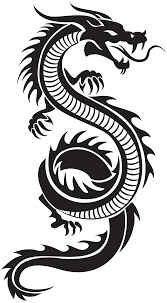
Chinese Lunar
New Year
|
|

Valentine's
|
|

|
|

Easter
|
|

All About
Dr. Seuss
|
|

Roald Dahl
|
|

Prepper's
Pen |
|

Ways to
Help
Leon's Planet
|
|